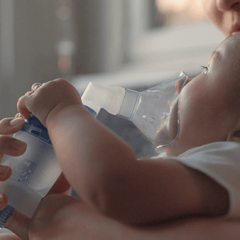A project conducted at The University of Queensland is aiming to uncover why some pregnancy complications can make an individual more susceptible to heart disease and kidney failure.
Dr Karen Moritz (St Lucia), from UQ’s School of Biomedical Sciences, will use an $80,000 UQ Foundation Research Excellence Award to study how maternal stress and hypoxia (lack of oxygen) during pregnancy can alter the way babies’ hearts and kidneys develop.
“We do know that babies who have had something bad happen to them while they were in utero are at a much increased risk of having these diseases when they’re older,” Dr Moritz said.
“Cardiovascular disease is responsible for 40-50 percent of all deaths in Australia and it all may be down to how you develop in utero.”
When a mother is extremely stressed during pregnancy, she produces hormones called glucocorticoids that cross the placenta to the baby and can alter the development of its kidney and heart.
Hypoxia – which means low oxygen – occurs commonly during pregnancy and is caused either by a compressed cord or poor placenta.
Dr Moritz said a lower-than-average birth weight was often the only clue that one of these complications had occurred.
“If you’re born at term and weigh less than about two-and-a-half kilograms, chances are you developed in a sub-optimal environment, and you are up to 10 times more likely to die of cardiovascular disease than someone who was born as a bigger baby,” she said.
“The epidemiologists have done hundreds of studies and said ‘wow, these people dying of cardiovascular disease are often born small’.
“But now we want to understand how it occurs.”
Using animal models, Dr Moritz will mimic what happens in humans to work out what happens at the molecular level to the development of a particular organ.
“We’ll look at what specific genes or proteins we’ve changed in the organs as these animals develop and thus how that impacts on their long-term health,” she said.
“If we make them hypoxic, for example, what does that do? Does it switch on some genes? Does it make the organ stop growing? How? Why? What genes?”
While still in its early stage, Dr Moritz said the study could potentially lead to gene therapy treatment options.
“Eventually we’d like to say we can help babies – it may be in utero treatment that we’re talking about,” she said.
“Part of the problem is being able to diagnose babies with these issues and we really can’t do that until we understand the mechanisms.”
While pregnancy complications could increase the risk of developing heart and kidney problems, Dr Moritz said lifestyle and diet were still important factors.
“We really think there’s this strong interaction between what’s happened as a fetus and what you do with the rest of your life,” she said.
“We’re only talking about increased risk - we’re not saying all small babies will go on to develop high blood pressure, for example.
“If we can diagnose these babies who have been exposed to stress or hypoxia, we can tell them that they’re at risk and better make sure they live a very good, healthy lifestyle and don’t stress their organs.
“We push our organs to the absolute limit of their functional capacity and then they just can’t work anymore, they just can’t cope with those added stresses.”
A Bachelor of Science and PhD graduate of Melbourne University, Dr Moritz joined UQ in 2006.
“I was always interested in fetal development and pregnancy. I always think it’s amazing that two cells can become an individual, and that so much goes on in those first few weeks of pregnancy when a whole baby basically develops,” she said.
“Now as a mother of two young two children, I think ‘wow, if we can educate women, there’s a great potential for intervention’.
“I think it’s an exciting field to be in and one that’s moving forward rapidly.”
Media: Dr Karen Moritz (07 3365 4598, 0418-596512) k.moritz@uq.edu.au) or Penny Robinson at UQ Communications (07 3365 9723, penny.robinson@uq.edu.au)



